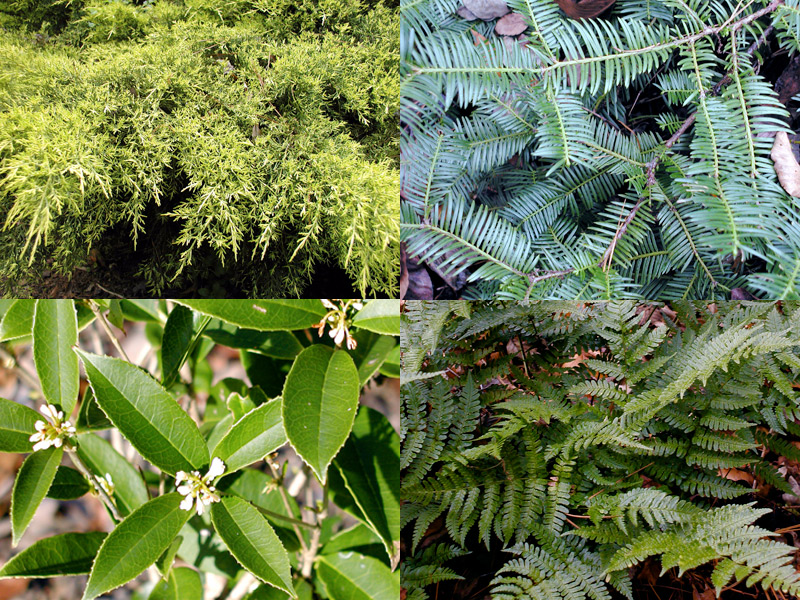Winter's essence in the garden
 Monday, January 4, 2010 at 11:15PM
Monday, January 4, 2010 at 11:15PM The essence of winter is in its shapes and its textures, in its stripped down bareness and honesty. It is in its monochromes and its contrasts, dark against light, warm hearth, frozen water. It is the slap to our senses as we inhale the sharp air or feel the icy hand of the wind push against us.
Winter has come to Alabama, with temperatures dropping into the teens this week. The sky on Sunday morning was cold blue, with rows of clouds marching forward, and the trees raised their dark branches to salute the day.
Walking through the garden, I was aware of some things I may have overlooked in another season.
A large piece of driftwood has been in the yard since we moved here in 1985. I like the curving shape of it, and I will miss it when it finally rots away.
I admired the colors of a rock, patterned with lichens.
A bird house in a dogwood tree awaits spring tenants. One summer this bird house had a green lizard as its occupant.
The dried heads of 'Limelight' hydrangea will provide winter interest until spring.
The peeling bark of Betula nigra, river birch is amazing.
Not everything is bare. There are many evergreens. I featured some of them in my post, Evergreens, the regents of winter. A few others, shown below, include:
upper left - 'Saybrook gold' spreading juniper. This beautiful plant is planted on a hillside to take advantage of its weeping branches. I love its golden color.
upper right - Spreading yew grows twice as wide as it is tall. It has deep green needles.
lower left - Osmanthus fragrans, tea olive, is a shrub growing to about ten feet. Even now its fragrant flowers are beginning to bloom.
lower right -Autumn fern. This is a tough, evergreen fern, which survives with minimal care in the woodland garden. New growth has copper highlights, which gives it its name.

There is another evergreen that I don't own yet, but I have been looking for a place for one in my garden ever since last year when I visited Biltmore Estate in North Carolina. This weeping blue atlas cedar captured my heart with its form and color. A plant like this has to be put in the right place. This one is sited perfectly. It echos the curve of the tree limb above it, and the smaller plant below it echos that shape again. Notice, also, how the curve is repeated in the walkway and how the tree's blue color is repeated in the bench on the right. Fabulous!
Stay warm, everybody, and may you enjoy the essence of winter. Deborah